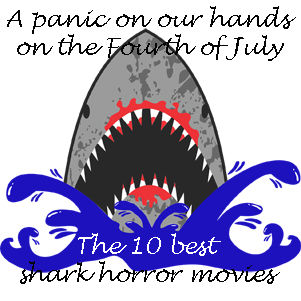Surprising for a science fiction author, Michael Crichton wrote about the past (“The Great Train Robbery,” “Eaters of the Dead,” “Pirate Latitudes,” “Dragon Teeth”) a lot more than he wrote about the future. And even his techno-thrillers imagine a breakthrough that’s immediately around the corner. In “Timeline” (1999), we learn the reason for Crichton’s past-looking lens.
An authentic past
Through the character of Doniger – who, unlike the benevolent author, has an evil corporatist’s view of the future – Crichton intriguingly outlines how the future lies in the past. Doniger aims to monetize history by building shopping malls and restaurants around historic sites. He believes that once people are bored by TV, movies and theme parks, they’ll desire authenticity. And true authenticity can only be found in the past.
The author notes how everything about our daily lives was invented in the past, yet we take for granted that we are superior to the people who came before us. In a striking passage, even medieval expert Marek is stunned by the strength of knights in heavy battle armor.

“Timeline” (1999)
Author: Michael Crichton
Genres: Science fiction, history
Settings: New Mexico laboratory, 1999; France, 1357
When he emerges from his time machine into 14th century France, Marek observes a sword fighting demonstration on page 205:
He had never imagined anything remotely like this. These men fought furiously, swiftly and continuously – and it looked as if they could go all day. Neither gave the least indication of fatigue; if anything, they seemed to be enjoying their exertions.
A robust ‘Sliders’ adventure
“Timeline” will hook fans of medieval history, and correct modern biases. In classic Crichton fashion, we get history lessons amid the “Sliders”-esque quest of anthropologists Marek, Chris and Kate (disguising herself as a man) to rescue the Professor. Helpful architectural sketches are peppered throughout.
I’m more of a fan of time-travel tales, though, so “Timeline” left me a little cold. In his afterword, Crichton admits that while quantum teleportation is a real thing, the idea of moving humans through time via “quantum foam” will, at best, amuse scientists.
Crichton uses even more hand-waving here than when describing dinosaur cloning in “Jurassic Park.” It’s clear enough that a 37-hour present-day period is linked up with a 37-hour period in the 14th century, so our heroes don’t get endless do-overs where they just send people farther and farther back until they get it right. The recent movie “The Tomorrow War” has similar rules, and explains them. In “Timeline,” it’s never explained why this is.
It’s engrossing to read about the wonders of quantum teleportation and multiverses in the first third of “Timeline.” But the author’s attention is so absorbed with the past that these scientific concepts don’t factor into the conclusion.
We do occasionally cut back to a present-day set of good guys – like the NASA personnel who worked to get the Apollo 13 astronauts home. But Crichton treads water on this side plot – at one point simply showing people eating breakfast — until the ticking-clock grand finale.
Perpetual war? Sounds familiar
Still, I was glad for these cutaways from the past, which is one long, exhausting adventure featuring thinly drawn characters. A war is taking place, and our heroes are like the droids in “Star Wars,” trying to not get killed. There’s no sense that one side is better or worse than another; everyone is nasty.
Survival is the order of the day for everyone from warlords to peasants, and they all know a violent or horrifying death lies at the end of their lives.
It’s funny that Crichton chastises readers in the afterword for thinking of medieval times as “the dark ages” after 400-plus pages of describing an age so grim that everyone naturally has dark thoughts all the time. Still, his points about architectural and technological inventions (often war devices, but also things like water power) are well taken: People of the past were not stupid.
Besides, we live in an era of perpetual war today, too. It’s nice that most of us are not directly involved in it. But the ways in which war stunts the growth of the human race continue to apply.
I learned a lot from this novel, but as for its entertainment value, “Timeline” is a matter of taste. If you’re like Marek and think it would be amazing to live in medieval times, you’ll eat it up. If you come for the science of time travel, you’ll be left hungry after the early appetizer.


